By Joan Torres 361 Comments Last updated on May 14, 2025

Wanna travel to Syria with Against the Compass?
Join a group of like-minded travelers in our next scheduled tour in Syria on:
Sept 23rd to 30th, 2025
This travel guide to Syria was originally written after my first visit in 2018.
Since then, it’s been constantly updated based on my multiple visits, while running over 20 ATC expeditions into the country.
Now, with all the changes brought by the brand-new Government, we have updated this Syria travel blog after our last visit in 2025.
Find here everything you need to know for traveling to Syria, including tips regarding visas, safety, transportation and more!
Why visit Syria with Against the Compass?

In this travel guide to Syria you will find:
our recommended travel insurance for Syria
IATI Insurance is one of the very few that covers travel in Syria.
🇸🇾 What is it like to travel to Syria today
Since the war in Syria started in March 2011, the country has gone through many different stages that have affected tourism there in different ways.
Traveling to Syria from 2011 to 2018
From 2011 until early 2018, Syria was a proper war zone that was off limits to foreign tourists.
Traveling to Syria from 2019 to 2025
Only at the end of 2018 did certain areas across West Syria finally gain stability, when the regime of Bashar al-Assad decided to open the country to international tourism.
At the beginning, foreign tourists were something rare, the local authorities always being very suspicious but, little by little, tourism started to come back, reaching its peak in 2023.
Independent travel in Syria, however, wasn’t really allowed by then.
In October 2023, the spillover from the war in Gaza and neighboring Lebanon slowed down tourism to its minimum.
Traveling to Syria with the new Government (2025 onwards)
In December 2024, Hayat Tahrir al Sham (HTS) overthrew the regime of Bashar al-Assad and took over the country, initiating a new era for Syria.
This group is pretty much the local branch of Al Qaeda in Syria. During the war, they were called Al Nusra, the people who took over Aleppo, Maaloula, and Krak de Chevaliers.
Today, they switched their name to Hayat Tahrir al-Sham, but they are essentially the same dudes.
However, HTS is saying that they have become more moderate, claiming that they will respect the great diversity of Syria.
Until yesterday, Syria was a pretty secular and relaxed state, but I am finding it very hard to believe that they will allow that level of secularism, which was so characteristic of Syria.
They won’t be as extreme as the Taliban in Afghanistan, but new Sharia rules will certainly apply, so Syria is likely to change.
📰 New vs old Government. What’s changed from a Syrian travel perspective
From a travel perspective, Syria is very different from what it used to be until 2024.
Here’s a small summary of all the differences.
The people at checkpoints now have long beards. Unlike the previous shaved-off army guys, the new soldiers are all jihadists who used to fight for Al Nusra, all of them having long beards.
The country’s new flag is waving everywhere. Syria has a new flag, which has already been recognized by the United Nations.
Bashar al-Assad’s portraits are all gone. The image of former dictator Bashar al-Assad used to be omnipresent, but his portraits and photos are now all gone and considered relics.
Everyone talks about how awful Bashar al-Assad was to the country. The one thing that surprised me the most was realizing the hatred that most Syrians had for Assad, everyone is talking about it.
Independent travel is now allowed. Let’s see how long this will last, but proper independent backpacking in Syria is now completely possible.
Newly opened areas. Many places that used to be off-limits, such as Idlib or north of Aleppo in Afrin, are now open for anyone, with no restrictions.
New Sharia rules. Nobody is sure about this yet, but what I can say is that some liquor shops and bars that were fully functional are now closed, but not because HTS forced them to do so, but because Syrians are afraid of their reaction.
🗺️ Sign up for a tour in Syria
 One of our latest Syria groups!
One of our latest Syria groups!Do you want to travel to Syria with a group of like-minded travelers?
Against the Compass has several scheduled group expeditions in 2025-2026:
- Sept 23rd to 30th, 2025. APPLY NOW
- Oct 14th to 21st, 2025. APPLY NOW
- Dec 23rd to 30th, 2025. APPLY NOW
- March 30th to April 6th, 2026. APPLY NOW
Check this documentary on our Syria tours!
Please note that this video was filmed and posted in 2023, when Syria was still under Bashar al-Assad’s regime.
 The views from the citadel in Aleppo… No words needed – Is it safe to travel to Syria
The views from the citadel in Aleppo… No words needed – Is it safe to travel to Syria🪪 How to get a tourist visa for Syria
Up to December 2025: arranging a security clearance through a valid tour operator was required for visiting Syria.
With the new Government in January 2026: a visa is available on arrival, no pre-arrangements are needed.
 My visa for Syria and my Lebanese stamps, the first time I traveled to Syria in 2028
My visa for Syria and my Lebanese stamps, the first time I traveled to Syria in 2028Is the visa on arrival available at all entry points?
You can collect your visa on arrival if entering Syria from Lebanon, Jordan, and also via Damascus International Airport (DAM).
How long is it valid for?
This new visa allows you to travel in Syria for 30 days.
What nationalities are eligible for a Syrian visa?
All nationalities can obtain a visa on arrival for Syria, and that includes US citizens.
How much does the visa for Syria cost?
It depends on your nationality and/or port of entry.
1) Visa costs, if entering by land from Lebanon or Jordan
As of today, the visa is free, it doesn’t have any cost but this might change in the near future.
2) Visa costs, if entering via Damascus International Airport (DAM)
You will have to pay for your visa, pretty expensive, in my opinion.
The cost of the visa for Syria is as follows:
- EU passports, including Switzerland and Norway: $125
- Canada: $150
- UK, Australia, New Zealand: $250
- USA: $300
- Colombia, Mexico, Venezuela, India: $75
- Argentina: $250
- Jordan, Lebanon, Malaysia, Mauritania: Free.
- Armenia, Georgia, India, Indonesia, Libya, North Korea, Russia, Serbia, Singapore, South Korea, Thailand: $75
- Azerbaijan, Brazil, Peru, Montenegro, China, Morocco, Angola, Pakistan, Chad, Sri Lanka, Cyprus, Cambodia, Cuba, Mongolia, Ecuador, Sudan, Algeria, Yemen: $40
- Oman, Egypt, Philippines, Uganda, Kuwait, Qatar, Turkey, Saudi: $150
- UAE, Iraq: $250
Wanna travel to Syria with Against the Compass?
Join a group of like-minded travelers in our next scheduled tour in Syria on:
Sept 23rd to 30th, 2025
🚑 Travel Insurance for Syria
Most travel insurance companies don’t cover for travel in Syria, except for IATI.
I recommend it because:
- Only travel insurance company that covers Syria
- They have different plans for all budgets
- Covers senior citizens too
- Readers of this blog can get an exclusive 5% discount.
 The Old City of Damascus – The columns belong to an old Roman Jupiter temple – Is Syria safe?
The Old City of Damascus – The columns belong to an old Roman Jupiter temple – Is Syria safe?🛫 How to get to Syria
How to travel to Syria by land
1 – How to travel from Beirut (Lebanon) to Damascus
Traveling to Damascus from Beirut is the easiest way to travel to Syria.
Beirut is only 115km from Damascus and the journey takes 3 to 4 hours, including the customs process.
If you book a full tour for Syria, your transfer from Beirut to Damascus will certainly be included.
Otherwise, independent travelers should know that shared taxis to Damascus depart from Charles Hélou bus station, running all day long. In my case, I got to the station at 3 pm and waited for no more than 15 or 20 minutes.
The cost per person shouldn’t be more than 20-25 USD. A private taxi will cost you 100-125 USD.
Read: A travel guide to Beirut
 Charles Hélou station – Beirut to Damascus
Charles Hélou station – Beirut to Damascus2 – How to travel from Tripoli to Tartus
You can also travel to Syria from the border north of Tripoli.
Shared taxis to Tartus cost around 15 USD and they leave until 8pm from this station.
It is only a 65km journey, so it should be fairly quick.
3 – How to travel from Amman (Jordan) to Syria
The border between Jordan and Syria is open, but the journey from Amman is way longer, plus the border crossing can take a long time, sometimes the whole day.
If you book a full tour for Syria, your transfer from Amman to Damascus should also be included.
Otherwise, there’s a bus company named Al Kamal that runs a daily bus service from Amman to Damascus, departing at 2 pm.
Buses depart from an international bus terminal located in southern Amman. Tickets can be purchased there, or you may also book them at their central office, located here.
A bus ticket costs 25 JOD.
4 – How to travel from Turkey to Syria
Today, the border between Syria and Turkey is closed to foreigners.
How to travel to Syria by air
With the new change of Government in January 2025, many airlines are resuming their flights into Damascus International Airport, including Turkish Airlines, Royal Jordanian and Qatar Airways.
However, I am not sure if flying directly into Damascus is more convenient than coming from Beirut, for the following reasons:
- Flights into Damascus are expensive, plus you will also have to pay for your visa (at land borders, the visa is free).
- The transfer from Beirut to Damascus takes 3 to 4 hours, which could actually be faster than your flight connection.
By the way, in addition to the airlines mentioned above, you can also fly to Damascus with Cham Wings, Syrian Air, and Iraqi Airways. The problem, however, is that you can’t book your flight tickets online, but only at their respective office, in cash.
Read: Lebanon – A 2-week itinerary
 Somewhere in Damascus – Can you travel to Syria?
Somewhere in Damascus – Can you travel to Syria?⚠️ Is it safe to travel to Syria?
Along with how to get a visa for Syria, safety is the other big question mark for anyone traveling to Syria.
Look, the war is practically over in West Syria, and cities like Aleppo and Damascus are relatively safe.
You see children roaming around, the old city of Damascus is packed, and everything seems just fine.
I still remember the first time I traveled to Syria in 2018. I was in Damascus for Christmas and, for the first time since the beginning of the war, the streets of the Old City of Damascus (and Aleppo as well) were filled with Christmas lights and celebration.
 Celebrating Christmas in Damascus – How to travel to Syria
Celebrating Christmas in Damascus – How to travel to SyriaThe atmosphere was full of joy, happiness, and both Muslims and Christians were celebrating such an event with very big enthusiasm (there is a huge Christian community in Damascus).
Since then, things have only been better.
For a better understanding, read my analysis: Is Syria safe to visit?
Is Syria safer after the fall of Assad’s regime?
I really don’t know whether the country is now safer than with Bashar al-Assad, but what I can tell you is that bazaars, old cities, and cafés are equally packed.
When it comes to safety, I didn’t see any big difference versus how it was before, from a tourism perspective, at least.
From a local perspective, however, Syria has become unsafe for certain minorities, such as the Alawites and the Druze, both suffering persecution from the Islamist armed factions linked to the current Government.
Read: Is it safe to travel to Iraq
 A tank from the Syrian Army, somewhere near Palmyra
A tank from the Syrian Army, somewhere near Palmyra📍 Which parts of Syria are safe to travel?
Read my 100% safe travel itinerary for Syria.
The most stable areas to visit in Syria
By stable, I mean that they have been relatively safe since the end of the war in 2018.
These places – all of them part of our Syria Tours – include:
Damascus, Maaloula, Bosra, Homs, Aleppo, Krak de Chevaliers and Palmyra.
Still, keep in mind that this is a post-war zone, which means that it is highly unstable and things could change overnight.
Lesser stable areas to visit in Syria with the new regime
Today, I’d personally avoid traveling along the Syrian coast, including Latakia and Tartus, but especially Latakia, since that’s the heartland of the Alawites, the most hardcore supporters of Bashar al-Assad’s regime.
There have been reports of massacres against Alawites in Latakia in 2025, mainly perpetrated by fighters aligned with the Syrian Government. It’s not safe to go now.
New areas you can visit with the New Government
Idlib
Idlib might be the most relevant newly opened area you can visit in Syria.
Until 2024, Idlib was the only region controlled by HTS, from where they expanded to the rest of the country.
Idlib was and still is backed by Turkey. They use the Turkish Lira and only Turkish phone reception works here.
It’s also a super conservative region, even more than Raqqa. Most local women wear a niqab, and female tourists are obliged to wear a hijab.
Raqqa and beyond
Today, Raqqa is controlled by the Kurdish forces, who annexed the region to their new so-called state of Rojava.
Raqqa and all of Rojava used to be open if entering Syria illegally (sort of) from Iraqi Kurdistan, but with the new Government, you can now enter from West Syria, as long as you have the necessary permits for entering Rojava.
We visited Raqqa in 2025 through the main road coming from Hama.
 Long Live Aleppo – Is it possible to travel to Syria?
Long Live Aleppo – Is it possible to travel to Syria?The people – The Syrians
Language spoken in Syria
Levantine Arabic is the official language.
You should know that many English-speaking people left the country but you will always find someone who does.
In any case, try to learn some Arabic before traveling to Syria.
Religion in Syria
Around 65% of the population are Sunni Muslims but, like in Lebanon, in Syria, there are many different religions, including a large Christian population. Bashar Al-Assad is Alawite, a Shia branch.
 Friendly Syrians, always – Visit Syria tourism
Friendly Syrians, always – Visit Syria tourismResponsible tourism and ethics in Syria
How do Syrians feel about tourism?
According to the UN, around 500,000 Syrians have been killed, nearly 5,000,000 escaped from the country and several million more who are still in the country need humanitarian assistance.
We are talking about one of the worst humanitarian crises in the 21st century.
Many people are skeptical about traveling to Syria, claiming or thinking that it’s a direct way of supporting Assad’s regime, hence it is disrespectful to all the people who have been affected somehow.
My opinion is that, before making any judgment, we should ask the actual Syrians living in Syria what they think about it.
If you ever go to Syria, I doubt you will ever talk to a single Syrian who isn’t happy to see a foreign tourist.
In 2018, when the war was still recent, Syrians who spoke English approached me, asking a lot of questions and showing their gratitude for visiting their country.
Hello, how are you?
Well, alive, thank God! – A random Syrian told me
That was a couple of years ago. Today, tourists in Syria are more common to see and for them, it’s an inflection point that their country is, very slowly, going back to normality.
 More friendly Syrians – How to visit Syria
More friendly Syrians – How to visit SyriaHow to be a more responsible traveler in Syria
Syria is a post-war zone, where millions of people have lost their houses and relatives, much like Haiti, so please, be a sensitive tourist.
Don’t say war but crisis or situation instead
You will see that many Syrians themselves don’t really use the word war but they prefer to say other less harsh words.
 Syrians hanging out in a destroyed building in Homs
Syrians hanging out in a destroyed building in HomsDon’t take selfies with damaged buildings
Seriously, this is one of the most disrespectful things you could ever do and you would actually be an asshole if you did it.
Empathize with the locals
When you are in an area full of destroyed buildings be polite to the people, say hello, shake hands and just be nice with them.
Collaborate with the local economy
In Homs and Aleppo, you are likely to see small businesses open among all the ruins. Do buy things from them.
In Homs, I saw one small bakery shop in the practically destroyed souk; I couldn’t resist buying one kilo of sweets there, which I gave to a young boy that was looking for something among the trash.
Read: A travel guide to Iraqi Kurdistan
 The streets of Homs, which is around 40% destroyed – Is it safe to visit Syria now
The streets of Homs, which is around 40% destroyed – Is it safe to visit Syria now🛺 Transportation: how to travel around Syria
You can travel around Syria by local buses and shared taxis.
To be very honest with you, I’ve only done proper backpacking in Syria once, in 2018. In my following visits, I was either with our groups expeditions, or traveling around by car with my Syrian friends.
However, I know for a fact that moving around Syria by public transportation is completely possible, especially when moving between cities.
The main bus station to go anywhere north of Damascus is located here, from where you can go to Aleppo, or Homs. I also took a shared taxi from Aleppo to Homs, and from Homs to Damascus. Easy.
 When you travel in Syria, you’ll see that Bashar Al-Assad face is everywhere
When you travel in Syria, you’ll see that Bashar Al-Assad face is everywhere💻 Internet and connectivity in Syria
Wi-Fi in Syria
Wi-Fi works relatively OK in most hotels, at least the ones listed in the accommodation section of this travel guide.
Can I get a SIM Card for Syria?
By the way, note that as of today, eSIMs are not available in Syria.
You can get a Syriatel SIM Card in the official store. There’s one right next to Merjeh Square.
Get a VPN for traveling in Syria
You should always use a VPN when you travel, especially when you connect to public Wi-Fi networks.
Your connection will be much safer.
Moreover, you will be able to access content that is typically censored in Syria.
I recommend ExpressVPN – Extremely easy to use, fast and cheap.
If you want to learn more about VPN, check: Why you need a VPN for traveling.
💰 What you need to know about money before traveling to Syria
In Syria, they use the Syrian Pound (SYP), a currency that has been fluctuating like crazy for the past 10 years.
Before the crisis, $1 equaled 50SYP.
In 2018, during my first visit, $1 equaled 490SYP.
Today, you can exchange $1 in the black market for up to 10,200 SYP.
As a consequence, Syria is suffering from massive inflation and the problem is that most salaries haven’t increased accordingly.
 The new Syrian bill with Bashar Al-Assad’s face on it. Nowadays, this is around 50 cents.
The new Syrian bill with Bashar Al-Assad’s face on it. Nowadays, this is around 50 cents. Exchanging money in Syria
You can exchange both Euros (€) and USD ($) but USD can be exchanged at a better rate.
If you bring 100 USD notes, keep in mind that they only accept the new ones with the blue line.
If you have Syrian Pounds left when you leave, you can exchange them for Lebanese Pounds or USD in most exchange offices in Beirut, at the official bank rate, which means that it won’t be so good.
Where can you exchange Syrian Pounds?
The best is to exchange at the exchange offices you find before reaching the border. With our groups, we always exchange in a Lebanese town named Chtoura.
ATMs and credit cards in Syria
Because of the foreign sanctions, in Syria, you can neither pay by credit card nor using ATMs. You must bring all your money in cash.
Update 2024: Due to the current financial crisis, the same rule applies to Lebanon. If you are traveling to Syria from Lebanon, you must bring enough cash for visiting both countries.
How much does it cost to travel to Syria?
These are the prices of the most typical things:
- Lunch in a local restaurant: 50,000 to 80,000SYP
- Food in a nice restaurant with wine: 150,000 to 250,000SYP
- Breakfast (like hummus or ful): 35,000SYP
- National Museum: 25,000SYP
- Aleppo Citadel: 2,5000SYP
- Bus from Damascus to Aleppo: 50,000 to 70,000SYP
- Budget Hotel in Damascus: $35 to $45 for a private room
- Mid-range hotel in Damascus: $60 to $90 for a private room
- Taxis within cities: 40,000 to 60,000SYP
- Local shared taxi Aleppo to Homs: 100,000 to 150,000SYP
 The Citadel of Aleppo – Traveling to Syria
The Citadel of Aleppo – Traveling to SyriaAre the Syrian cities really destroyed?
This seems to bring a lot of confusion, so let me explain it to you:
Damascus
Only the outskirts of Damascus are destroyed, as there was a bloody battle there. That area is off-limits to tourists.
The Old City and the new part of town remain intact.
Aleppo
A percentage of the Old City is destroyed, as well as some areas from outside the city.
Most of Aleppo isn’t damaged but some very important sites from the Old City, like the Great Mosque, are gone.
Nowadays, however, the city is being rebuilt and people are slowly coming back.
Homs
One of the most affected cities by the war.
Approximately 40% of the city is destroyed and that includes its bazaar, one of the liveliest and most important souqs in all the Middle East.
Palmyra
The Temple of Bell was destroyed by ISIS but Palmyra is a massive archaeological site and many of its wonders can still be seen.
 the Old City of Aleppo – Is Syria a safe place to visit?
the Old City of Aleppo – Is Syria a safe place to visit?📸 Taking photos when you travel in Syria
You can take photos of everything except for one thing: military stuff.
Yes, it is very obvious but the problem is that there is military stuff everywhere, especially in Damascus.
In Damascus, it happened a few times that I took a picture of some cool building or whatever, from relatively far away, and didn’t realize there was a checkpoint right next to it.
Of course, the soldiers approached me but, after quickly checking my passport and my camera, very kindly, let me continue.
In Damascus Old City, there are checkpoints everywhere, so pay attention before taking any photos.
 A soldier in Aleppo’s citadel
A soldier in Aleppo’s citadel Damascus bazaar is really good to visit
Damascus bazaar is really good to visit🏨 Accommodation: where to stay in Syria
Syria is well-sorted with good hotels. Here are my recommendations.
Where to stay in Damascus
Budget Hotel: Green Hotel. Clean, Wi-Fi and just outside the Old City. The guy from the reception spoke English.
 Green Hotel in Damascus. I paid 15 USD for this room. It was simple but clean, and everything you need!
Green Hotel in Damascus. I paid 15 USD for this room. It was simple but clean, and everything you need!Boutique Hotel: Beit al Mamlouka. A small hotel at the heart of the old city.
Luxury: Beit al Wali. One of the best hotels in the city.
Where to stay in Aleppo
Budget: Aleppo Palace. Good, affordable option in Aleppo, with great views of the new part of town. It’s located right next to the I Love Aleppo sign.
Mid-range: Laurus. A little bit further but way better than Aleppo Palace and not much more expensive.
In Aleppo, you can also find a Sheraton.
Where to stay in Homs
Budget, mid-range: Al Waleed. Very nice basic hotel with a very lively café just downstairs.
Where to stay in Al Mishtaya
Al Mishtaya is a Christian village near Krak de Chevaliers.
They have a pretty good brand-new hotel named Vila Rosa Hotel.
Where to stay in Palmyra and Busra
Today, you can’t stay in any of them because there are no hotels.
🍲 The food and alcohol in Syria
In the last few years, I haven’t traveled to many countries that are famous for their food, but Syria is.
Being an olive-oil-rich Mediterranean country, the ingredients used in their cuisine are fresh and similar to the ones we used in Spain, Italy, France, and Greece.
The food is actually pretty much the same as in Lebanon, with their own regional variations, of course.
From the classic hummus to kibbeh (local steak tartar), different sorts of grilled meat or a typical dish of Aleppo consisting of meatballs in cherry sauce, the food in Syria is so varied.
For me, however, breakfast is the best part, as they always serve different variations of hummus and ful deep in super tasty olive oil and vegetables.
As per alcohol, you should know that Syria has a large Christian population, so alcohol is easily available, especially in the Christian district of the Old City of Damascus, where there is a street filled with bars and many liquor shops.
You can actually buy a $1 beer and drink it in the street!
 Hummus for breakfast 😀
Hummus for breakfast 😀❗ More information for traveling in Syria
📢 In my Travel Resources Page you can find the list of all the sites and services I use to book hotels, tours, travel insurance and more.
All guides and articles for traveling in Syria destination
Travel guides to other countries in the Middle East
- Iran Travel Guide
- Palestine Travel Guide
- Travel Guide to Oman
- Travel Guide to Lebanon
- Iraq Travel Guide
- Travel Guide to Saudi Arabia
- Yemen Travel Guide
- Socotra Travel Guide
You will also like our Libya travel guide and Haiti travel guide.
You will also be interested in: Where in the Middle East is safe? and The most beautiful places in the Middle East.
I hope this Syria travel blog will help you to plan your trip. I will try to keep it updated but, if you have more updates, please let us know in the comments section. Thanks 🙂



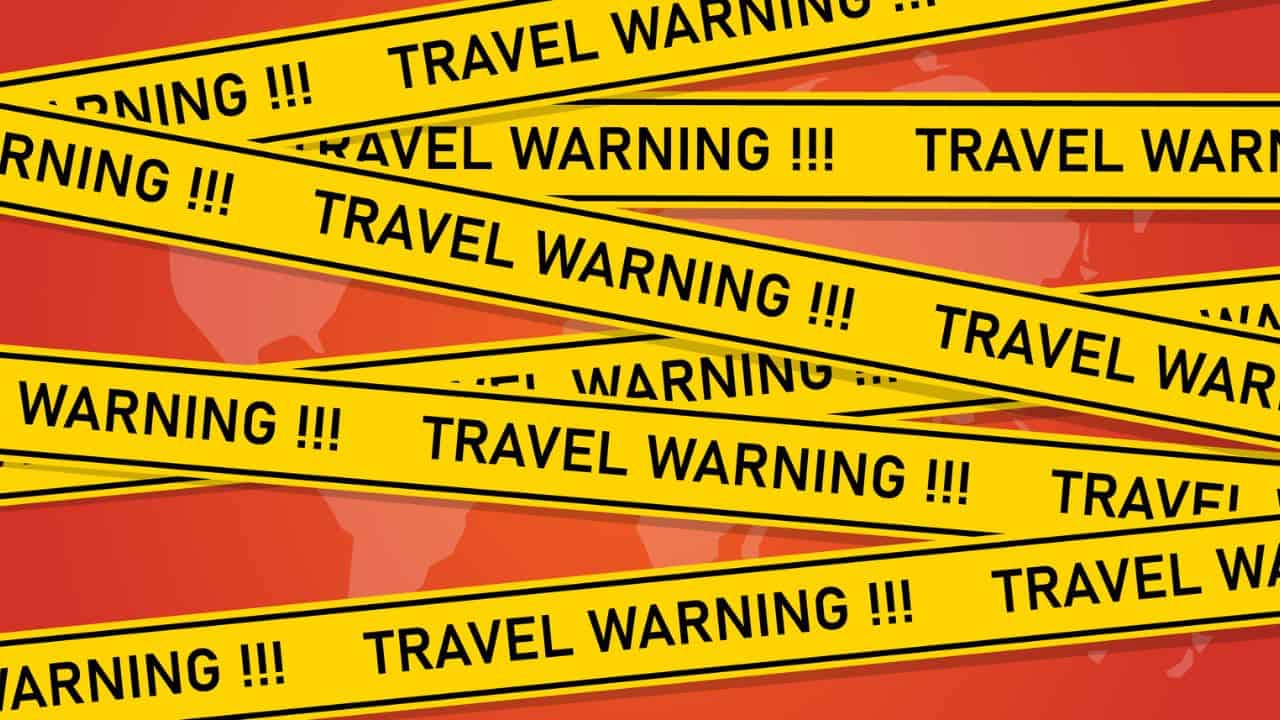

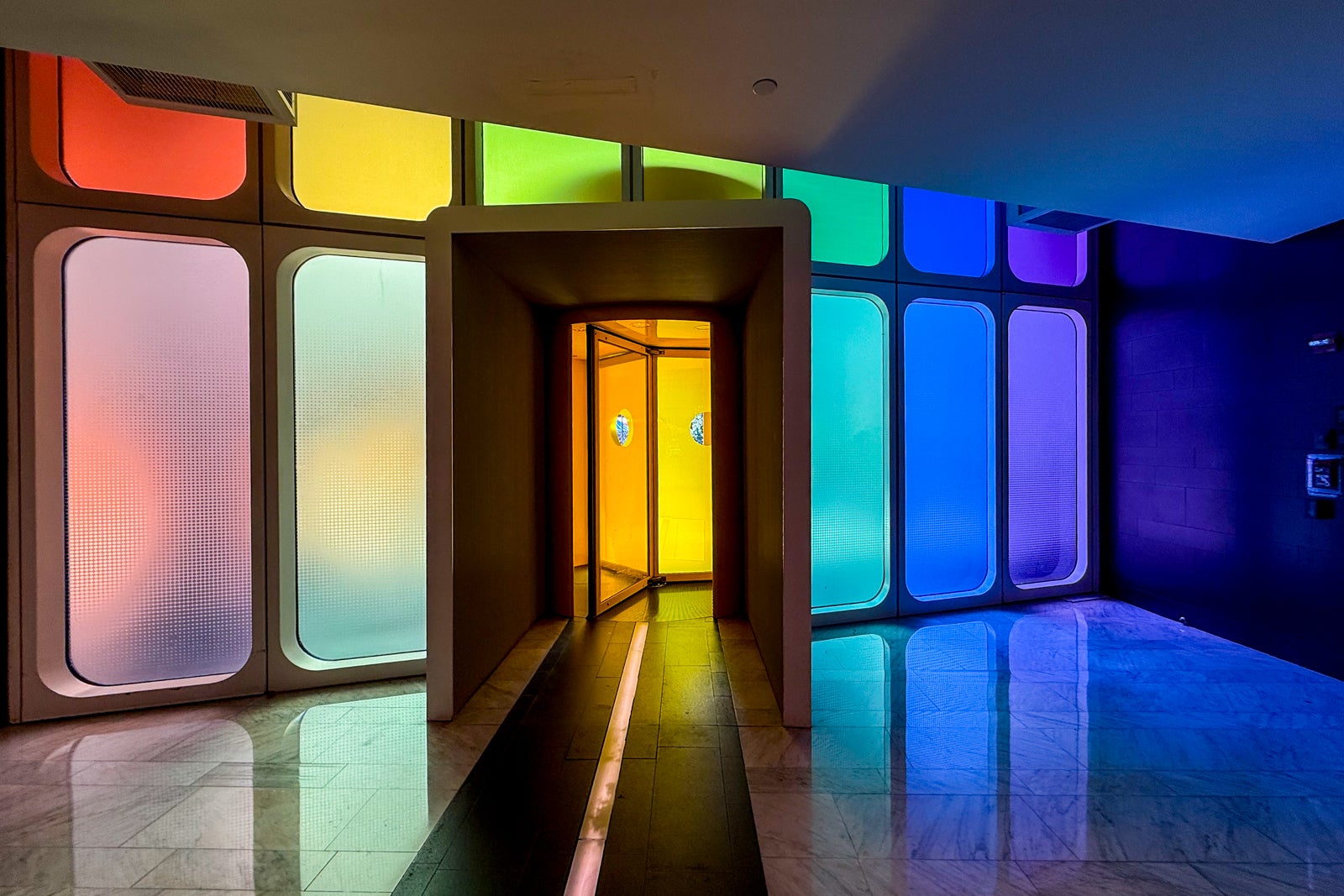

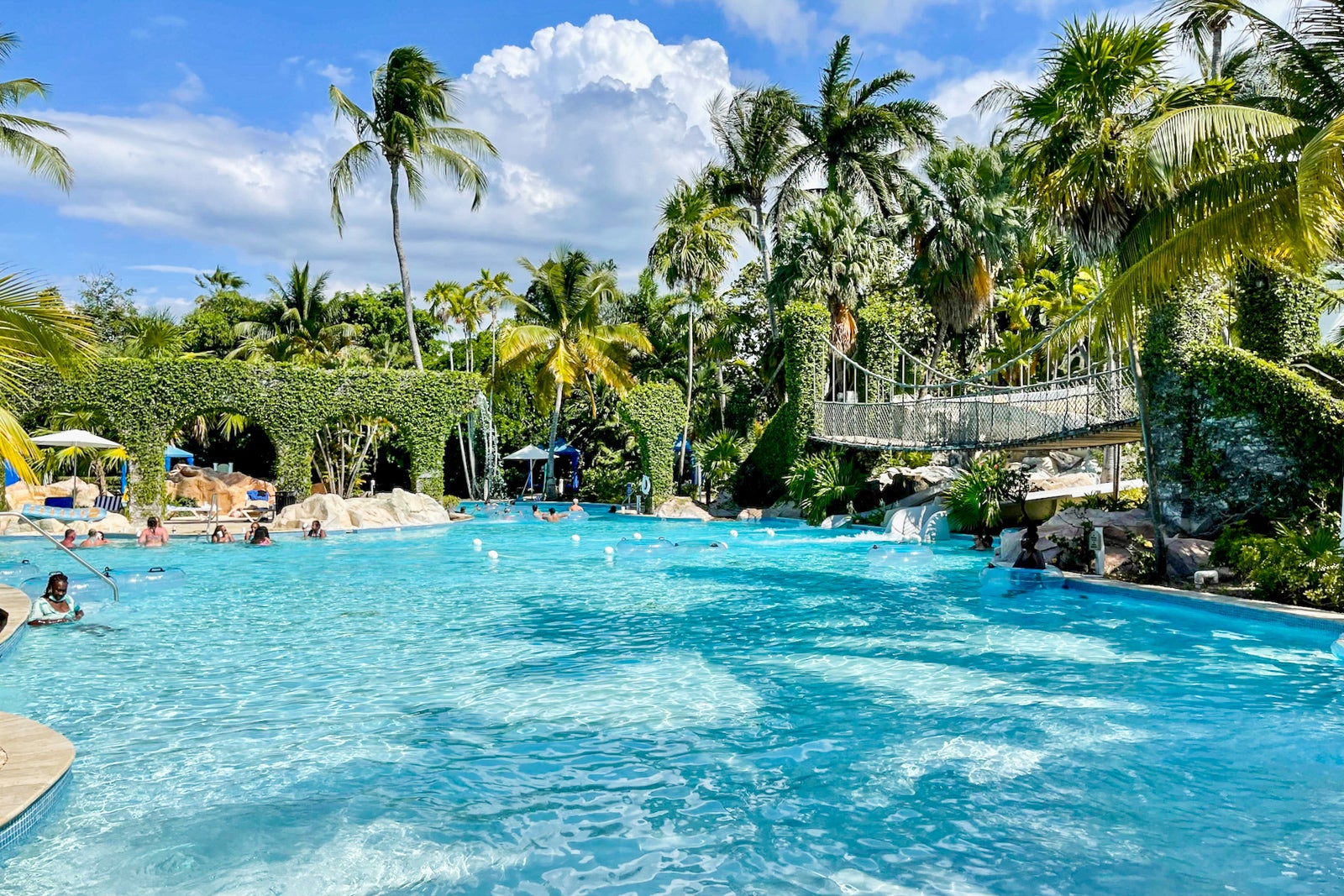
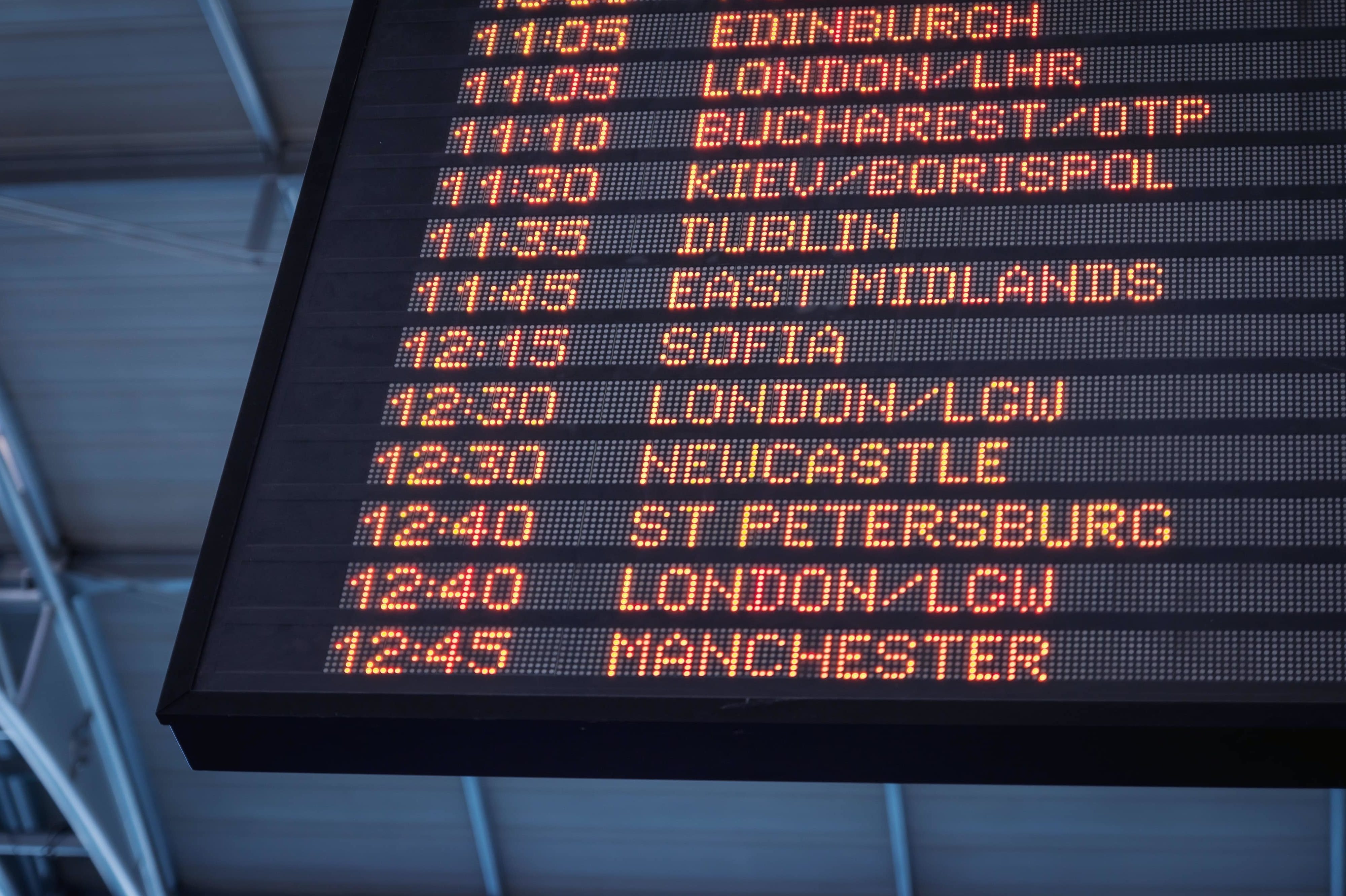
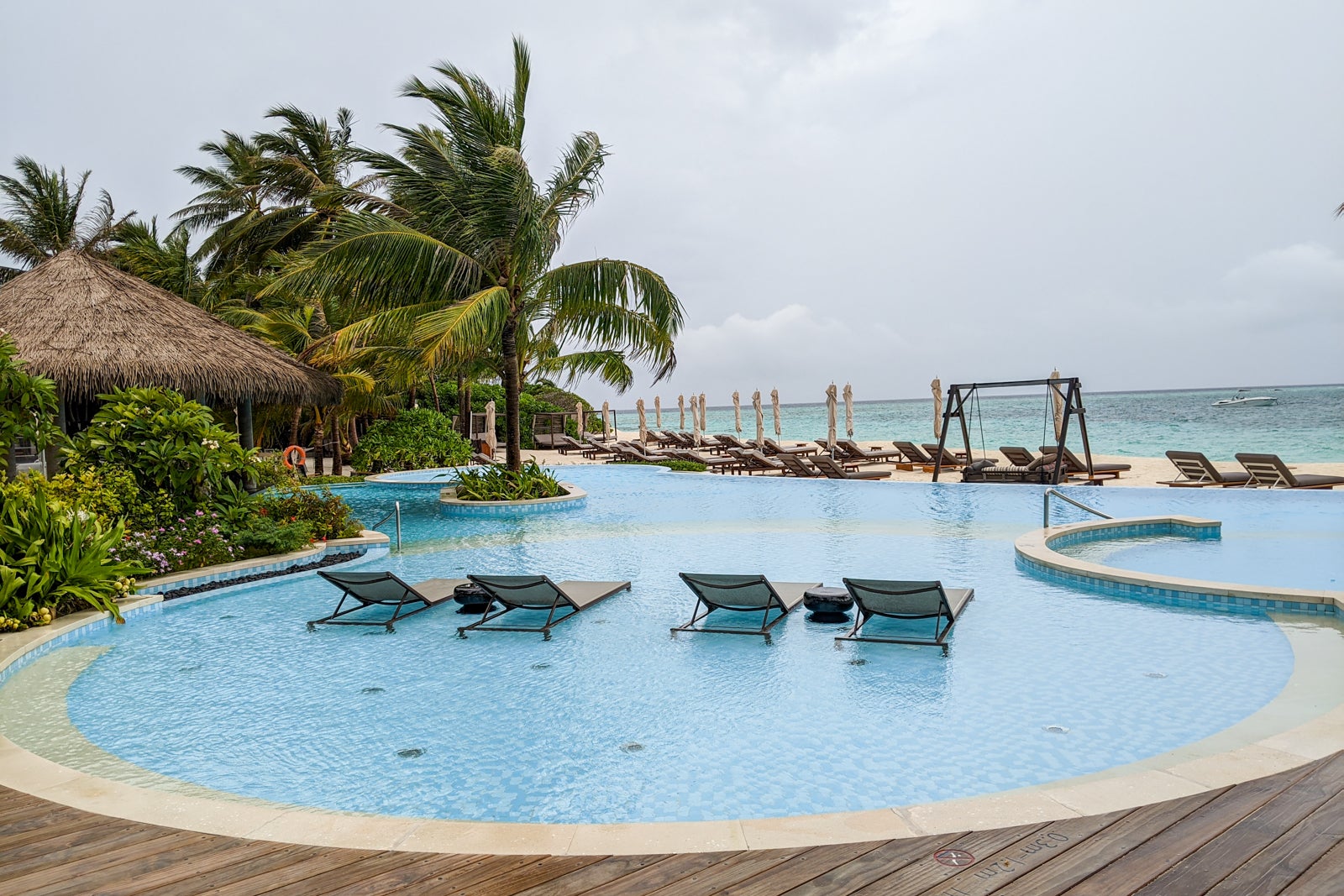
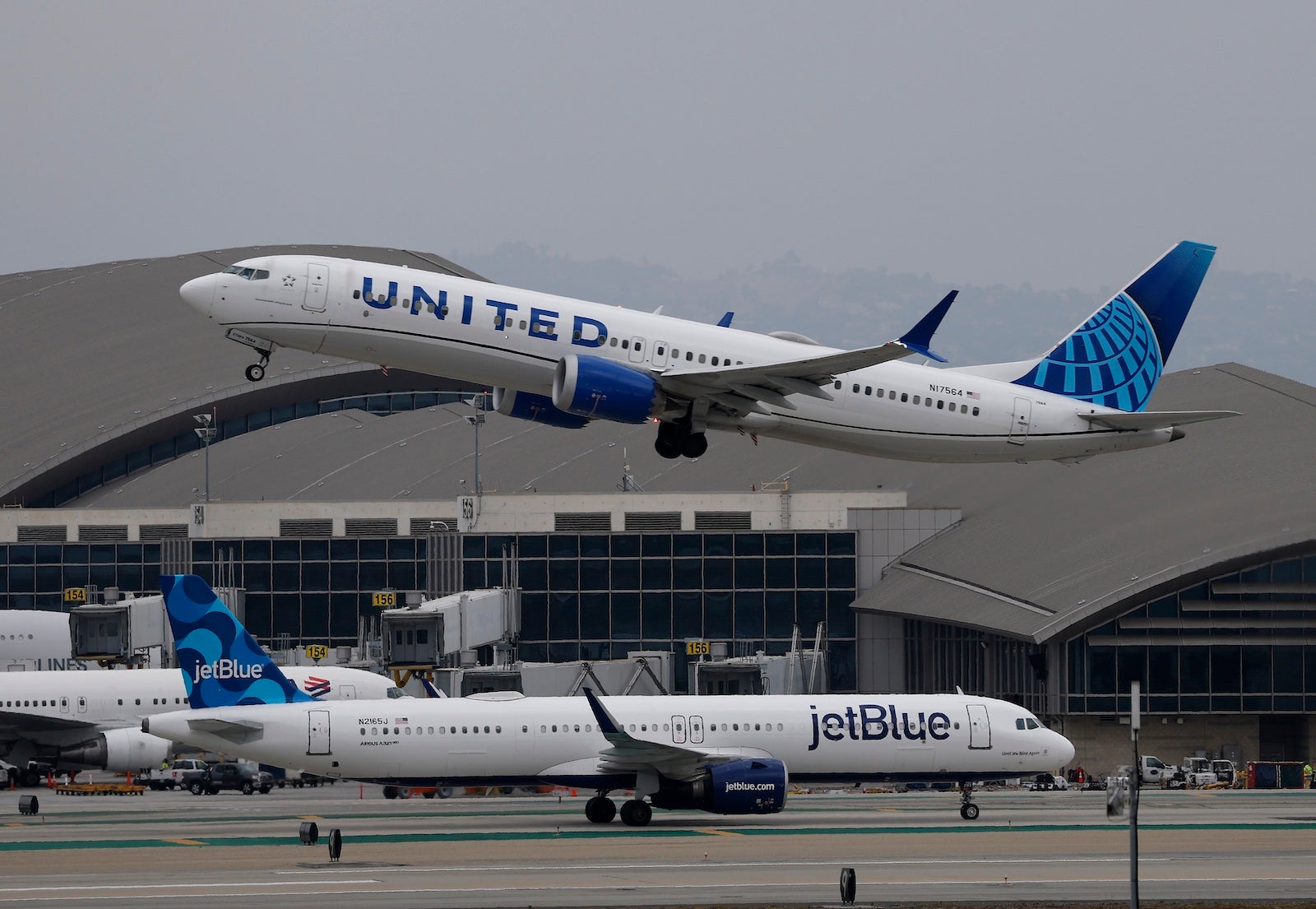
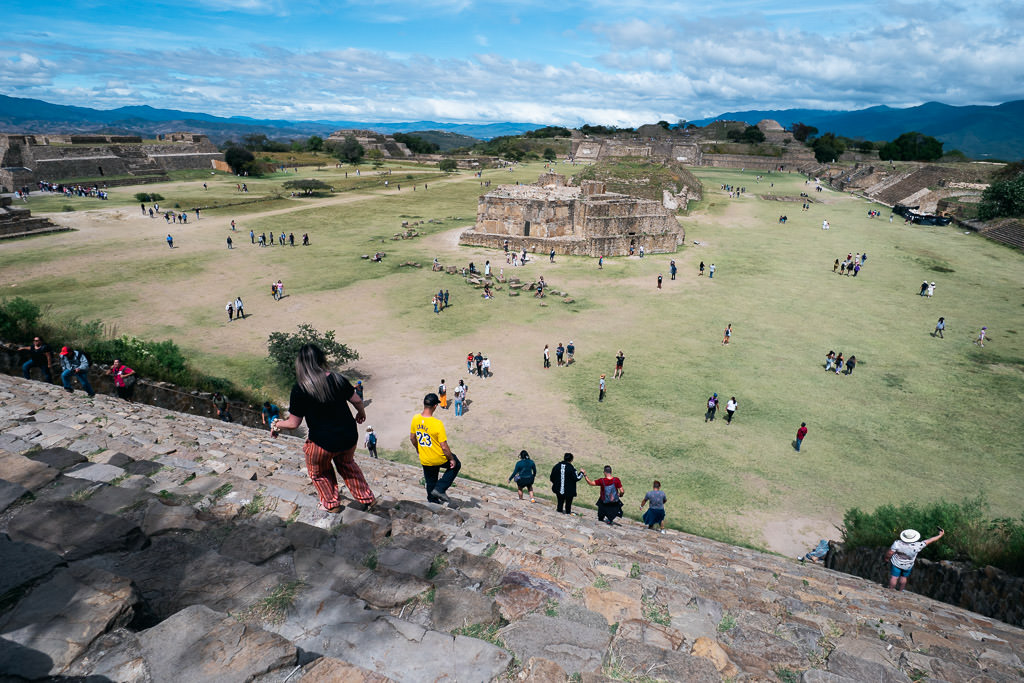

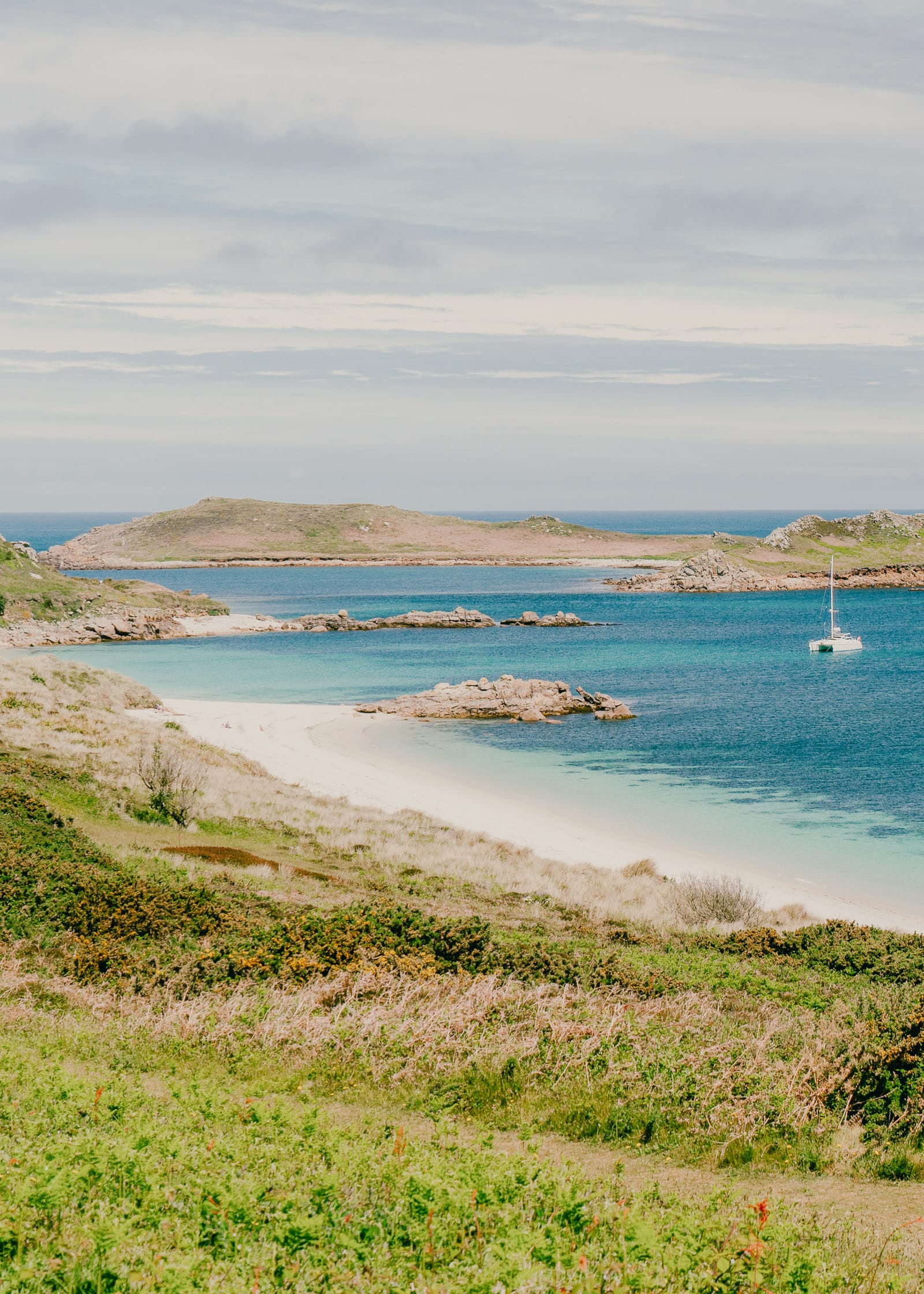




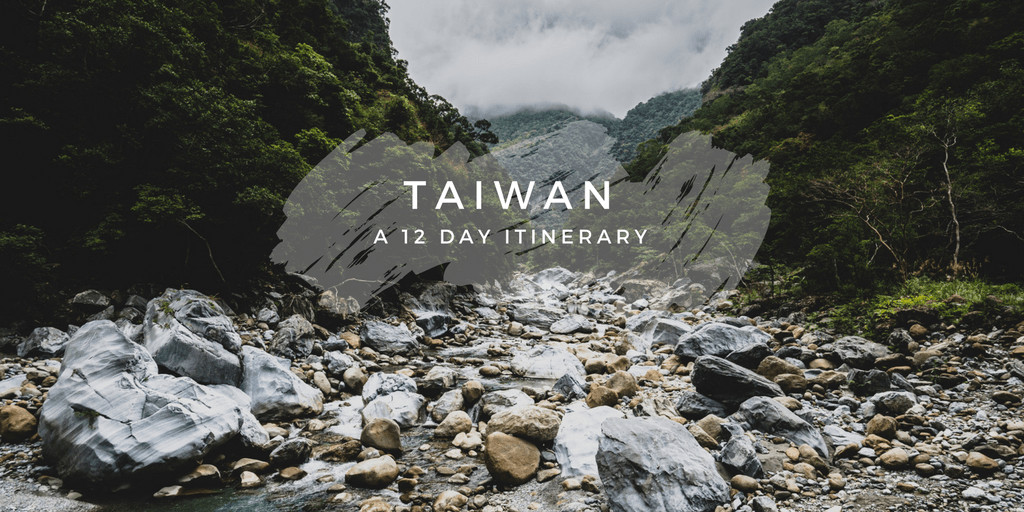
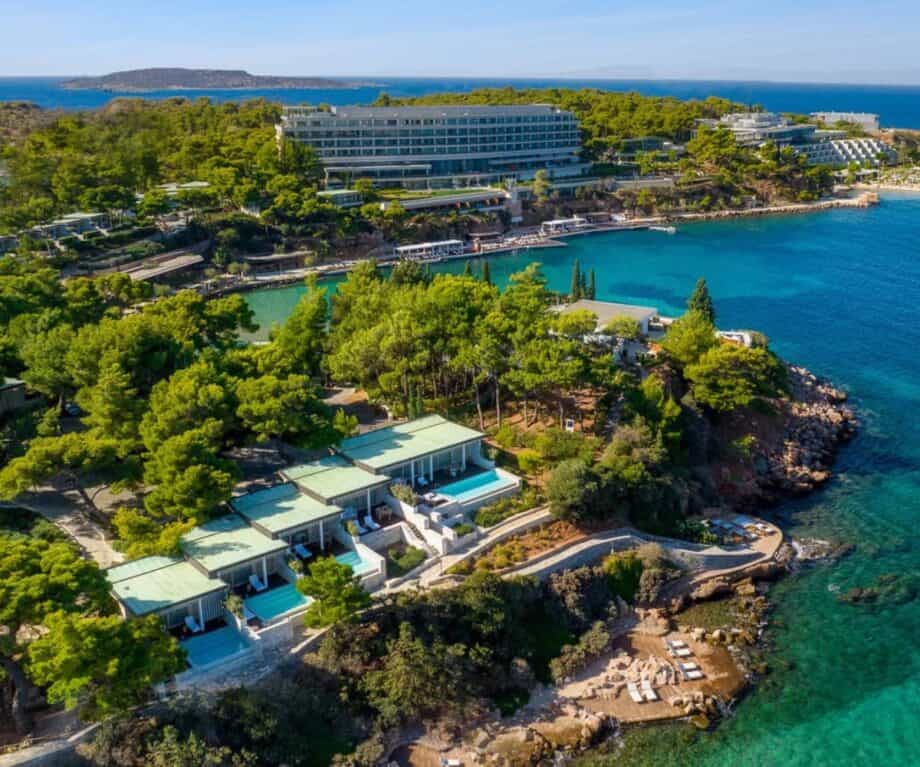
 English (US) ·
English (US) ·